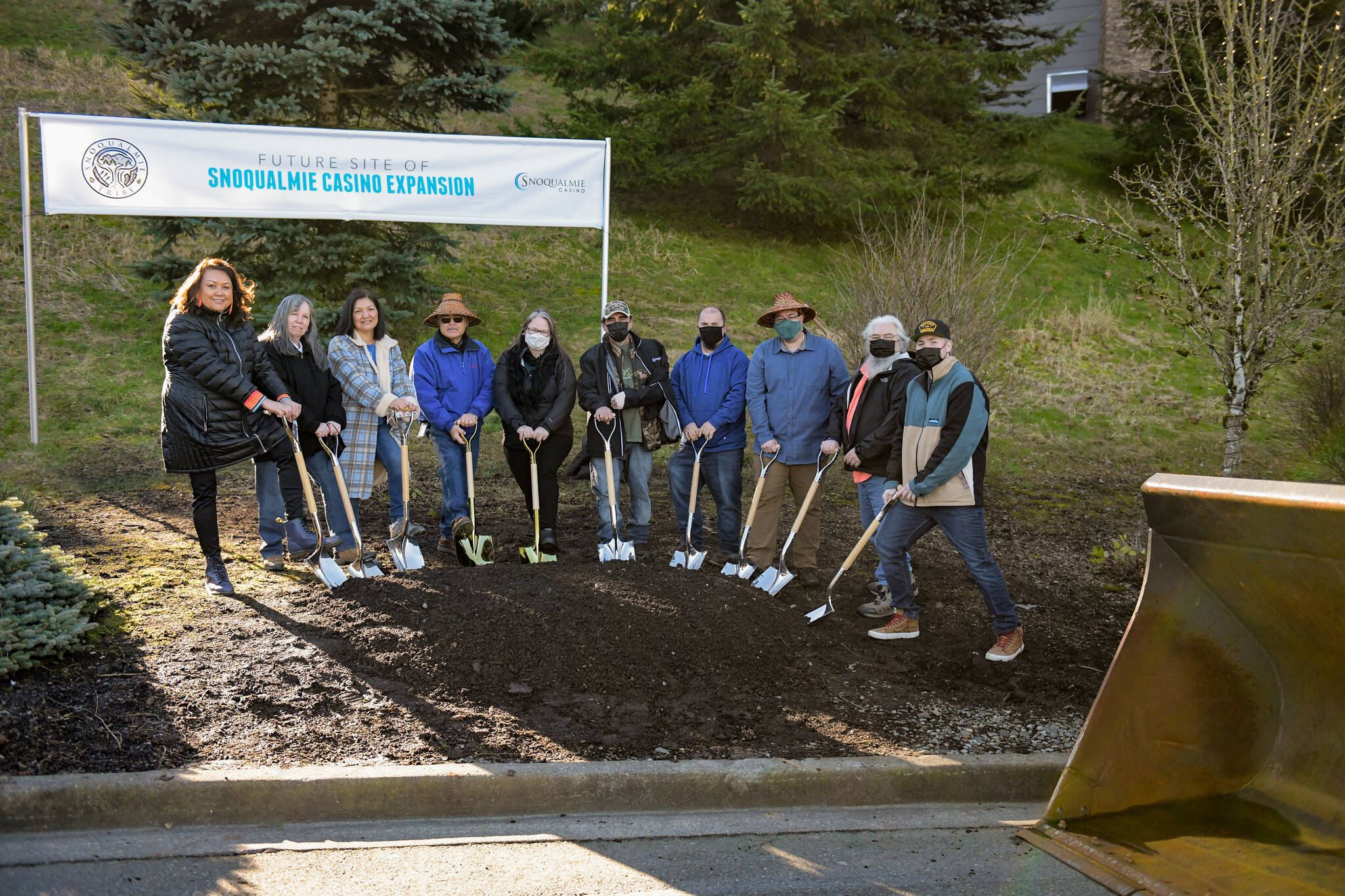The City of Snoqualmie and the Snoqualmie Tribe have inked a deal that paves the way for new development on the Tribe’s reservation, including plans for casino expansion and a new 210-room hotel.
The deal comes as the city agreed Tuesday, May 31, to supply additional sewer service to the Tribe. In exchange, the Tribe has agreed to pay the city $6.6 million in general facilities charges and for aeration improvements, as well as monthly wastewater rates, that will be used for future city projects.
Alongside the hotel, plans also include expanding the casino’s gaming floor, adding a 2,000-seat convention center, a spa and additional parking structures. The Tribe said they expect to welcome hotel guests by the end of 2024.
The new sewer deal is the fifth interaction of an ongoing agreement between the Tribe and city that began in 2004. Under that arrangement, the city council agreed to provide the reservation with police, fire, emergency services and sewer utilities while the casino was being constructed.
Over the years the city has removed provisions from the original deal – including police, fire and emergency services – while also extending the deal and providing additional sewer capacity.
The deal was last reupped in 2020, when the two sides agreed to a six-year extension lasting until Nov. 2026. Shortly after that extension, the Tribe requested additional service from the city to support a new hotel and other development on its reservation.
Since then, over a nearly two-year span, both side have been working on an amendment to the deal that would add the sewer capacity needed for expansion. That amendment was approved unanimously by the city council Tuesday.
In a statement, Snoqualmie Tribal Chairman Robert de los Angeles said since the Tribe gained federal recognition status in 1999, its enterprises have allowed them to provide Tribal members with education, health care and housing, while also allowing the Tribe to give back to the community.
“This next period of growth at the Snoqualmie Casino allows us to continue advancing those goals,” he said.
The opening of the hotel will depend upon the city completing the third phase of its Water Reclamation Facility Improvement project, which will provide enough sewer capacity to service the development. The majority of construction on the reclamation facility is expected to start in 2024, according to the city’s proposed Capital Improvement Plan. Phase one and two of improvements wrapped up in 2017 and 2019 respectively.
At the council meeting Tuesday, Mayor Pro Tem James Mayhew, the council liaison to the Tribe, called the agreement a “more permanent arrangement,” adding that the collaboration will help build trust between the two sides. He also praised Mayor Katherine Ross, who took office this year, for getting the agreement finished.
“There were a lot of trust issues, I would say, with the Tribe trusting the city and with the city trusting the Tribe. That’s why it took two years to negotiate this,” Mayhew said. “This really came to a culmination when the new mayor grabbed on to this and drove it over the goal line.”
Under the previous administration, with former Mayor Matt Larson, the Tribe and city sparred on multiple occasions, including a 2015 federal discrimination lawsuit the Tribe filed against Larson and several council members – that was later dismissed – involving the same sewer agreement that was amended this week.
The casino, which opened in 2008, is the largest employer in the Valley and new construction is expected to generate an estimated 500 more jobs, the Tribe said. Ross said the agreement would benefit both parties.
“It’ll be positive locally and have a positive regional impact,” she said.



